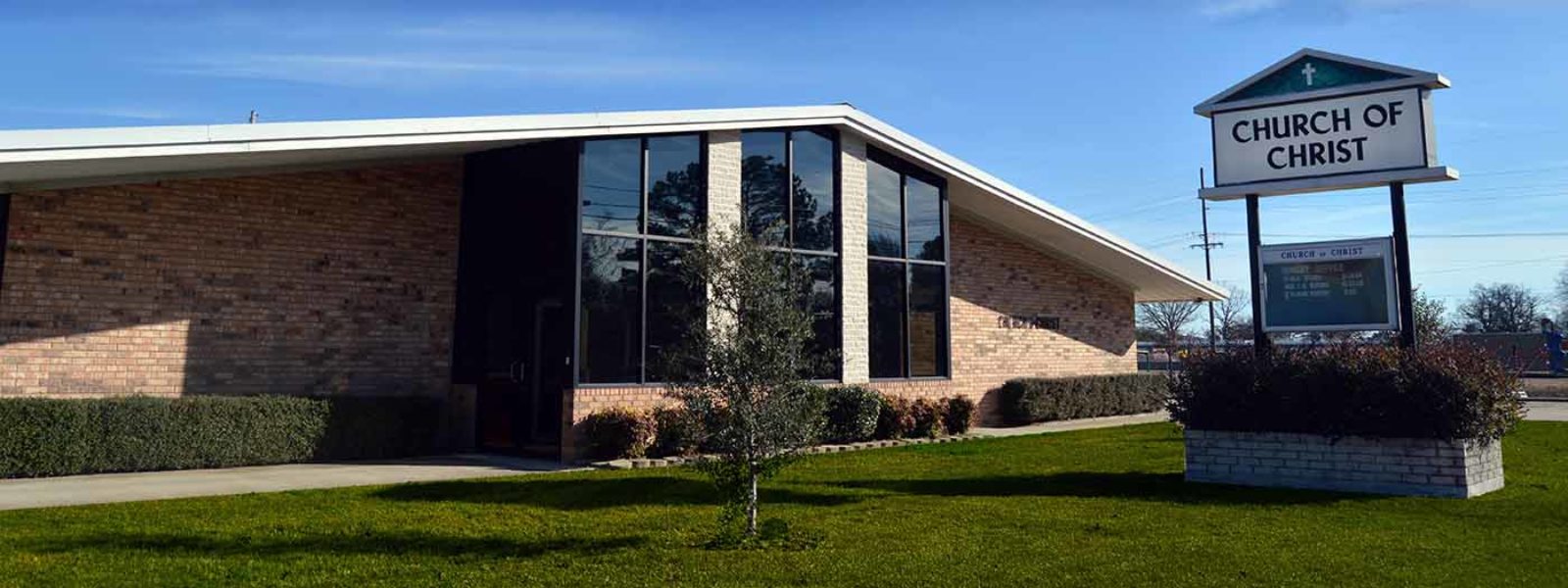What is Anti-ism?
Podcast: Play in new window | Download
Subscribe: RSS
SUBJECT: Phariseeism
TITLE: What is Anti-ism?
PROPOSITION: To discuss the modern day phenomena known as Anti-ism and relate it to Phariseeism in the New Testament.
OBJECTIVE: To show that we should not bind as matters of faith things that are just matters of opinion.
INTRODUCTION:
1. Read: Matthew 15:7-9
2. About the Text:
1) One of the key difficulties with religion is that many have a zeal that is not according to knowledge (Romans 10:2).
2) When this happens, we begin to establish our own righteousness and are not satisfied with God’s righteousness.
3) In essence, this is a failure to respect God’s authority over our lives.
4) We will either go beyond what is taught and allow things that God doesn’t allow.
5) Or, we will start to put heavy burdens on others and disallow things that God has allowed.
6) The Pharisees were one group who placed burdens on others that they should not have.
7) In our text in Matthew 15, they condemned the disciples for not washing their hands before they ate.
8) This was a transgression of the elders’ traditions.
9) Jesus pointed out that their own traditions nullified the word of God.
10) The result was that their worship to God was empty because they regarded the traditions of men as more important than God’s word itself.
11) We have some people like that among us today.
12) We sometimes refer to them as “antis.”
3. Ref. to S, T, P, O, and A.
DISCUSSION: What is anti-ism?
I. Anti-ism is Phariseeism.
1. Who were the Pharisees?
1) They were a sect or party of the Jews who descended from the Hasidim or “pious ones.”
2) Pharisee means “separated.”
3) They were especially concerned about strict observance of the law of Moses.
4) They were a majority of the Sanhedrim counsel; the ruling body of Israel.
2. The Pharisees bound their traditions upon Israel while often ignoring the Law of Moses.
1) Matthew 23:4 — “For they bind heavy burdens and grievous to be borne, and lay them on men’s shoulders; but they themselves will not move them with one of their fingers.”
2) Matthew 15:1-9.
3) Some examples of this were:
a. Excusing themselves from the fifth commandment by giving to the temple (Matthew 15:6).
b. Condemning Jesus for healing on the Sabbath, but permitting an animal to be pulled out of a pit (Matthew 12:11).
c. They tithed their spice racks (Matthew 23:23), but omitted mercy, judgment, and faith.
4) Jesus characterized them as straining at a gnat and swallowing a camel (Matthew 23:24).
5) The Pharisees condemned others based upon external appearances because they were doing things to be seen of men (Matthew 23:5).
3. Anti-ism is Phariseeism because it does the kinds of things that the Pharisees did.
II. What are the doctrines of the antis?
1. Non-institutionalism.
1) Some are opposed to giving from the church treasury to orphans homes and other institutions.
2) They argue that since there is no example of the church doing this in the New Testament that it isn’t authorized.
3) They prohibit churches giving any money to other “institutions.”
4) They often include orphan homes in these “institutions.”
5) God ordained three institutions: the home, the nation, and the church.
a. The church may give to homes, including orphans homes.
b. The church is not supposed to give to other institutions supplanting the work of the church.
2. Non-saints doctrine.
1) Some are opposed to giving money out of the church treasury to anyone who isn’t a Christian.
2) They argue that churches in the New Testament only gave to Christians.
3) They prohibit churches giving money to non-Christians.
4) However, the Bible teaches that we are to do good to all men (Galatians 6:10).
5) We are also supposed to support widows and orphans (James 1:27).
3. Anti cooperation.
1) Some are opposed to cooperating financially with other churches.
2) They argue that there are no examples of any churches cooperating with other churches in the NT.
3) They prohibit churches giving money to other churches.
4) Philippians 4:15 and 2 Corinthians 11:8.
4. Anti Bible classes.
1) Some are opposed to having Bible classes.
2) Their chief issue is that they do not believe women should be teaching these classes because of Paul’s prohibition in 1 Timothy 2:11-12.
3) They prohibit women teaching in children’s Bible classes.
4) But Paul was discussing a public assembly of adults, not children.
5. One cup.
1) Some are opposed to using more than one cup in the Lord’s Supper.
2) They argue that Jesus only used one cup and so we must also.
3) They prohibit multiple cups.
4) Matthew 26:26-29 teaches that the cup is the contents, not the container.
6. Anti-kitchen doctrine.
1) Some are opposed to having a kitchen in the building.
2) They argue that money from the church treasury can only be spent for preaching the gospel.
3) They prohibit kitchens in the church building.
4) The principle of expediency permits churches to spend money on kitchens and other such things as will further the work of the kingdom.
5) Jude 12 talks about “love feasts.”
7. These are all prohibitions that God never bound on Christians.
III. A Word for Christian Grace and Liberty
1. In the book of Galatians, Pharisees were trying to take over the church.
1) They taught that one had to be circumcised to be saved (Acts 15:1).
2) They were bringing in a different gospel (Galatians 1:6-7).
2. This gospel was without grace
1) “Christ is become of no effect unto you, whosoever of you are justified by the law; ye are fallen from grace” (Gal.5:4).
2) When we seek to be justified by some set of man-made laws and traditions, we are taking ourselves out of grace.
3) Grace means that God favors us not for some list of dos and don’ts, but for who we are in Christ.
4) “Being justified freely by his grace through the redemption that is in Christ Jesus” (Romans 3:24).
3. This gospel was without liberty
1) “Stand fast therefore in the liberty wherewith Christ hath made us free, and be not entangled again with the yoke of bondage” (Gal.6:1).
2) When we seek to be justified by some set of man-made laws and traditions, we remove ourselves from the liberty in Christ.
3) Liberty means that there is no law against the fruit of the spirit.
4) “But the fruit of the Spirit is love, joy, peace, longsuffering, gentleness, goodness, faith, Meekness, temperance: against such there is no law” (Gal.5:22-23).
CONCLUSION:
1. What can we learn from anti-ism?
1) Let us resolve to avoid Phariseeism.
2) Let us not prohibit things that God has permitted.
3) Let us respect the doctrines of grace and liberty.
2. Invitation


